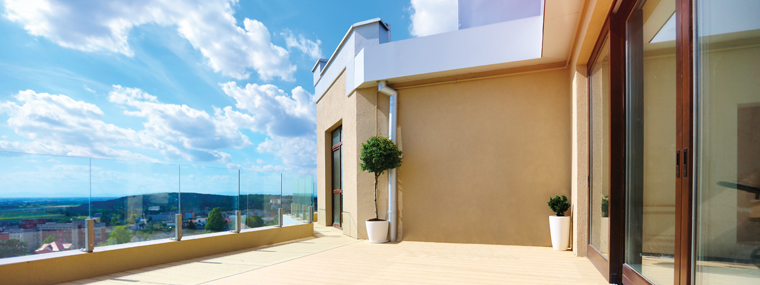
Who Is Responsible?
By Ryan D. Poliakoff / Published October 2018

Q
uestion:
My question regards the responsibility for balcony screening. The builder of our 1970 condominium provided frames and screens for the unit balconies. Since then, some owners have added sliding glass doors (with permission) inside these screened enclosures. As a result, the screen supports for most units have deteriorated to the point that a person who leans against them will fall from the upper floors, and the same would be true if the doors were opened.
As a board member, I have informed unit owners that they are responsible for the maintenance of these supports; however, these unit owners have decided that they will just wait until there is a hurricane or some other casualty, thus causing the condominium members to assume this cost. Obviously, this has become a liability issue.
Under the circumstances, what are my options? Do I call a board meeting to address this issue and demand that the owners repair these “limited common areas” in accordance with our governing documents? Do I demand that there be a special assessment to fix this problem as a common expense (especially where the end units have nearly 40 percent of the screening and the other 66 units would have to pay this extra amount)? Finally, do I just go to the building inspector in our jurisdiction and tell him of the problem and have these balconies condemned? Then I probably won’t have to worry about being reelected again, which would be a blessing.
Answer:
You state that the screen enclosures are limited common elements, which is very likely. That, alone, would not determine who is responsible for their maintenance. It seems, however, that you have reviewed the declaration of condominium and determined that the owners are, in fact, responsible to maintain the screen enclosures. Given that is the case, you can enforce this obligation in the same way that you would enforce any other covenant or rule. First, you can either fine owners (up to $100 per day, assuming there is no further limitation in your governing documents, and up to $1000 in the aggregate for a continuing violation). You can also suspend their rights to use the common elements and other facilities, such as a pool, gym, etc. These tools alone may be enough to convince recalcitrant owners that it’s time to get the building in shape. If those tools don’t work, you have the authority to file a petition for arbitration (after first sending a statutorily-mandated demand letter) with the Division of Condominiums asking an arbitrator to order the owners to abide by the declaration and maintain their screen enclosures. If you prevail in those lawsuits, the owners would be responsible for some portion of your legal fees. (I find that the arbitrators rarely grant all of your fees—you can expect to recover approximately 50–75 percent.)
If none of these tools are successful or if you simply are not willing to wait out an arbitration, you could go to code enforcement, and you might succeed in getting these balconies red tagged (placed off limits to the owners)—but that really is a nuclear option, and I would be concerned of the risk of the entire building getting shut down—in which event the juice really isn’t worth the squeeze.
With that said, I would not suggest that the board unilaterally take on the responsibility of repairing balconies that are otherwise the responsibility of the unit owners. It would not be a proper common expense, and you may have difficulty collecting from owners who choose not to pay the assessment. You could, instead, amend your declaration to shift the responsibility to the association, in which case you would presumably not have to worry about this issue in the future.
Question:
Our bylaws say that we are required to have nine board members, and if a vacancy occurs, the board can fill it. We have had only seven board members for the last two years, and even though people have stepped forward and volunteered to serve, the board has not appointed anyone.
Right now, the voting split is always 3–3, with the president always voting with the same three members. As a matter of fact, I think the outcome is predetermined prior to the monthly board meeting.Since many of us disagreed with this decision, the board dec-ided to have a community vote to change the board from nine members to seven. The vote did not pass—however, the board has opted not to fill these empty spots until 2020, when the two seats are up for reelection. Is this legal?
Answer:
It depends. Do your bylaws state that, in the event of a vacancy on the board, the remaining directors “may” appoint replacements? Or do they say the remaining directors “shall” appoint replacements? Those words have different legal meanings. If it says “may,” it’s permissive, and the board may be able to sit tight until the next election. If it says “shall” or “must,” the board legally should be replacing the directors—but the only way to push the issue would be to file a complaint with the Division of Condominiums (assuming that they would consider this an election issue) or to file a petition for arbitration—a process that could take a long time, and where you run the risk of being responsible for the association’s legal fees if you lose. The board should keep in mind that, for any votes where a majority of the total board is required, you have a nine-member board, despite only having seven filled seats—and so failing to appoint the replacements may limit the board’s power in substantive ways.
Ryan D. Poliakoff
Partner of Backer Aboud Poliakoff & Foelster
Ryan D. Poliakoff is a partner of Backer Aboud Poliakoff & Foelster and serves as general counsel to condominiums, homeowners associations, and country clubs throughout South Florida. He is the co-author of New Neighborhoods—The Consumer’s Guide to Condominium, Co-Op, and HOA Living. In addition to representing associations, he is a frequent contributor at seminars and workshops for attorneys and board members, and he has written hundreds of articles for magazines and newspapers throughout the United States. He can be reached at rpoliakoff@bapflaw.com. For more information about his firm, visit www.bapflaw.com.




